|
By now we all know something about climate change. While COVID19 prevention has been prominent on our collective minds, climate change follows and is in fact potentially the far greater threat in the long term.
I’m tempted to take back that “long term” reference because day after day climate experts and agencies remind us how little time remains to do anything substantive or significant enough to halt our current march toward disaster. So the UN’s SDG #13 is not entitled climate change but climate action, which is so much more to the point. A huge global problem, a shrinking window to address it effectively. On Earth Day I tweeted “the Pachamama (Mother Earth) will not be happy until we take better care of her.” There is much to learn about the real dangers climate change poses, and how we can become stewards of Mother Earth in protecting and caring for this great gift of our Creator. Obviously we need to be informed on this pressing issue to some degree, and insist on political action to combat our dependence on fossil fuels and promote clean and affordable energy for all. As Pope Francis says in Laudato Si: “We have to realize that a true ecological approach always becomes a social approach; it must integrate questions of justice in debates on the environment, so as to hear both the cry of the earth and the cry of the poor. (#49) and “We are faced not with two separate crises, one environmental and the other social, but rather with one complex crisis which is both social and environmental. Strategies for a solution demand an integrated approach to combating poverty, restoring dignity to the excluded, and at the same time protecting nature. (#139) The Pope elegantly reminds us that no issue is isolated, that everything is connected, While we might debate whether is X an injustice or must Y be changed, we must recognize, as Vincentians who see things through the view of the poor and vulnerable, one stark undeniable injustice: poorer countries contribute less to climate change yet suffer most the consequences of it! It’s not that nothing is being done. There is remarkable, creative and global advocacy for climate action on many fronts. Recently, for example, the US Administration hosted a Global Summit on “Adaptation & Resilience Challenges” for Climate Security, with the participation of world leaders from government, business, and banking. Commitments were made on carbon reduction, and monetary pledges followed. Huge sums in fact, $5 billion here and $10 billion there, in a way payback for how corporations have benefitted from the earth’s resources, but welcome funding that could underwrite great efforts nonetheless. But I remember thinking social problems cannot be solved by throwing money at them. While expert activists like Bill McKibben admit that real solutions ultimately depend on government action and policy, God help us if we wait for change from those beholden to the profit or influence motive. Bottom up is key, grassroots advocacy. Push the “leaders” in hopes they’ll follow! Closer to home and on a more personal level, we need to think about our everyday tasks and how our actions, though miniscule in comparison to the immense global task imposed by climate change, contribute to a lifestyle that pollutes and simply ignores what we are leaving behind to future generations. Having a vegan meal now and then, or recycling plastic, will not solve climate change. But small personal efforts create a consciousness in us, can lead to the courage to advocate more vocally on the issue, and may even generate broader support by others to join in the struggle to halt the current downward spiral. For example, when we leave a room, do we think to turn the light off? Could we walk or bike more often, or occasionally use public transit instead of driving? Do we vote for candidates who support clean energy? Do we encourage our work place to invest in clean energy? Do we dare take steps to change our diet—here’s one that stings!—due to how some food production contributes mightily to climate change. There are obviously a ton of other suggestions that flow from such a complex issue. I invite you to take a brief moment to google UN.org/ActNow. As concern for climate change rise and technology advances, we should realize that this work is sacred work. We become stewards of God’s creation. We show our gratitude for this great gift give to us. And we help our earthly home heal itself once again in the process. Jim Claffey, representative of the CM at the UN www.congregationofthemission-un-ngo.com @cmunnyc, FB congregation of the mission un
0 Comments
One day we’ll all be flying electric cars and living in solar-powered homes, but we’re not quite there yet. In fact, only half of the world’s urban population even has convenient access to public transit, much less a flying or self-driving car. And in recent years, air pollution causes at least 4.2 million premature deaths. So what’s the deal? We’re in 2021--where’s the solar power? The wind turbines? SDG 11 asks this question and many more, striving to make cities and human settlements inclusive, safe, resilient and sustainable. As the world becomes increasingly urbanized, according to the UN there is a “growing number of slum dwellers, inadequate and overburdened infrastructure and services (such as waste collection and water and sanitation systems, roads and transport).” Although cities only occupy 3 percent of the Earth’s land, they account for most of the world’s energy consumption and carbon emissions! Sustainable and thoughtful urban planning is crucial for a better tomorrow. As we move forward, we must press for functional public transport networks, increased recreational spaces that improve overall health and wellbeing, and inclusive, sustainable housing. Throughout COVID-19, faulty urban planning was readily apparent. With many people often confined to very small spaces, transmission of the disease was rampant. Proper urban planning is a large driver of pandemic prevention and resilient communities. With access to clear water, improved sanitation, durable housing and sufficient living space, all people would have improved health and wellbeing. Again, we see that SDG 11, like all other SDGs, is interconnected with so many other issues. With better cities, we have cleaner water, better health, greater inclusivity and equality, transportation to employment opportunities, the list goes on and on… As we rebuild our cities, let us focus on “proven holistic and people-centered approaches to slum upgrading and community empowerment”, “training program[s] for local, regional and nation government officials” of disaster preparation and resilience, “inclusive and gender-responsive governance”, and increased “urban-level data collection” as instructed by the United Nations and various sustainable organizations from around the world. We might not be flying our solar powered cars any time soon, but taking the initiative to improve our urban planning is a good place to start. “I need this,” an often-heard phrase in the United States by those passing storefront windows discussing items one most likely does not ‘need’ at all. SDG 12 seeks to address this statement by asking us ‘what do we really “need.’” The real answer is not much, despite what our consumerist culture often dictates.
Let’s take a look at the example of food and food waste:
This is the unfortunate pattern in the United States. Other developed nations have a similar problem although not at the level of the US figure of 40% food waste. And it occurs while an estimated 800 million people live in chronic hunger around the world. Consumerism is the culprit, and it must be addressed. It is often accompanied by other wasteful behaviors causing significant negative environmental and social effects in different areas. According to the UN, electronic waste has grown from 2010 to 2019 by 38% with less than 20% of materials recycled. The textile industry is the second largest polluter of clean water and often exploitative to textile workers. SDG 12 asks us to focus on responsible consumption. Our demand directs the supplier. With proper research to change our habits, we can create a sustainable tomorrow. It is also important to be innovative and focus on feasible solutions. Although the United States wastes 40% of their food, the French, for example, waste 1.8% of their food. After a study on Parisian and New York college students’ attitudes towards food and waste, St. John’s student researcher Chloé Bergeron—currently the Congregation of the Mission’s UN intern-- created a comprehensive Instagram food waste reduction campaign and yearly pledge entitled @foodjusticeSJU using links, graphics and challenges that highlighted food waste research and student survey responses. Emphasizing portion planning, redistribution potential, individual waste reduction opportunities, French cultural education, ways to get involved institutionally, and how to advocate for the issue on the governmental level, the campaign garnered extremely positive feedback. Nearly 100% of post-campaign survey respondents committed to be more involved in eliminating food waste either personally, in their school/work communities and/or on a governmental level. The results of the campaign proved that increased awareness of wasteful behaviors and waste reduction tactics increases solution-based activism and decreases waste. As consumers, we must make changes. As we become more aware of our wasteful behaviors, potential solutions, and ethical responsibilities, we can begin to make a positive difference on our global communities and pressure businesses to adopt sustainable practices. Let’s go to the grocery story. Let’s buy all the food we need, but with awareness of portion control, redistribution opportunities, cultural waste reduction practices, and a genuine understanding of the value of our food. Now, let’s eat all of it. This is the world we can create. Easier said than done, of course, so let’s get to work. Jim Claffey, UN representative of the CM, with Chloé Bergeron congregationofthemissionUN@gmail.com www.congregationofthemission-un-ngo Our national infrastructure holds us together. It’s not something we think about very often but it is essential. Transportation is a good example. In St. Vincent’s time most people lived and died within only five miles or so of their birthplace. Hard to imagine! Humankind is on the move, life means mobility, and development around the world demands systems that provide not just for personal travel but the movement of goods and resources. In fact, decent infrastructure separates the developed and developing worlds. The same can be said for our buildings, bridges, vehicles and all related items. But did you know that manufacturing growth, in general and not just e.g. in the USA, has been on a steady decline even before COVID? Resources and supply chains are too often disrupted by new obstacles. Our growing global interconnectedness means that if one country slows down, so do others. Inter-connected means inter-dependent. No country today can consider itself fully independent. As Systemic Change thinking reminds us: everything is connected, nothing happens in isolation. So we depend on healthy systems and creative minds to resolve issues and foster development. Throughout COVID, we’ve used technology as our lifeline, and we soon learned that our communication infrastructure is essential. Whether we were facetiming with our families in Rome or reading news about China, many of us were connected online, maintaining relationships at least virtually, and working effectively in a new way. Although much of the world is covered by at least a 2G network, far too many around the world do not enjoy the instruments nor the technical literacy to benefit from modern communication infrastructure. Some industries were not as resilient. Specifically, many small-scale industries were hit hard by the pandemic. We probably all know at least one or two independent shops that had to shut down due to the pandemic. These independent shops are important to our global societies. As the war against monopolistic corporations continues throughout the US and other parts of the world, small businesses are vital in helping to promote inclusive and sustainable industrialization and foster innovation. As the UN reminds us, “Economic growth, social development and climate action are heavily dependent on investments in infrastructure, sustainable industrial development and technological global manufacturing” which in turn create new employment and income alternatives. So SDG #9 asks nations to improve access to reliable and affordable broadband/high-speed internet, and accelerate widespread and equitable adoption of electric vehicles. To invest in infrastructure, research and development, to promote inclusive and sustainable industrialization and foster innovation. As consumers, we have a role to play. We can use our own purchasing power as ‘dollar votes’ for a world we want to live in. If we show businesses that we want sustainability, we can research first in order to give our money to truly sustainable companies, and to support industries whose goals align with our own. We have the power. We should use it wisely. One small but indicative example: a website particularly helpful in buying clothes sustainably by rating brands in several categories: https://directory.goodonyou.eco/?_ga=2.263115849.417480627.1619734137-191032380.1619734137. And modest research we can easily do on our own will put us in touch with other ways to find resources and companies worth supporting. SDG #9 above is quite technical and not an area we usually focus on, but this # 10 speaks directly to our Vincentian hearts! Our charism to share the Gospel with, and serve, especially people living in poverty, inspires us to work to reduce unjust inequalities.
We are all very different, with different needs and wants, but one thing we can agree on is that no one wants to be left behind. The truth is, however, many people around the world are left behind each day in different ways. Many are silenced, exploited, and left out of important global decisions. The powers that be, the decision-makers, do not ask those living in devastating poverty and constant vulnerability what they need and want, or how to supply it. Increasingly at the UN, the mantra has become “do not talk about us (poor people) without us.” Exploitation and suffering thrive in situations of inequality. And now we see the need to reduce inequalities loud and clear through the vaccine crisis. Many countries, typically the poorest and most vulnerable, have been unable to secure vaccines, while others mismanage some supplies and will not share the patent necessary for their production. Aside from inequalities that exist between countries before and during COVID, when it comes to health, security, social protection, and the economy, women of all nationalities have been most impacted by COVID due to their sex. Unemployment puts at risk the progress made towards gender equality and women’s rights. When schools open one or two days a week, this week but not next, in haphazard fashion, mothers, typically the family care-givers, cannot be expected to keep steady employment. Likewise, the special needs of older persons, persons with disabilities, children, migrants and refugees, and indigenous peoples must be considered as we rebuild our global communities. It is important that we center the voices of those who are most affected by systemic faults. It is important that we vote for legislators who consider the special needs of disenfranchised groups. It is important that we listen to those suffering, and do our best to understand the needs of those who surround us. It is important that all of us speak out against hate speech, which has risen sharply during the pandemic, and create inclusive and safe spaces for all people. Inequalities based on income, sex, age, disability, sexual orientation, race, class, ethnicity, religion and opportunity must be considered in every decision that we make. It is our responsibility to use our growing global connections for transformative change. We must invest in health, education, social protection and decent jobs. We must eliminate discriminatory laws. If we want to move forward, to “build forward together,” we need to focus on not leaving anyone behind. SDG #10 asks nations to adopt fiscal and social policies that promote equality, and improved regulation of global financial markets and institutions. To make decisions based on solidarity and the common good. “Leave no one behind” has become a moral imperative and a critical measure of successful development. Jim Claffey NGO Representative of the CM at the UN Congregationofthemissionun@gmail.com Congregationofthemission-un-ngo.com T: cmunnyc FB: congregation of the Mission UN I think it is safe to say that this past year we depended on technology more than ever before. Between connecting with family and friends or working from home by Zoom and using web “apps” like never before for health or shopping issues, COVID-19 made us all a bit more technology dependent. In fact, some argue convincingly that technology has become so central to life today that it should be considered a human right. Especially during Covid, technology has become the gateway to education, to services, and to a form of much-needed human connection. Now, having considered all of this, can you believe that 789 million people around the world lack electricity? As efforts are made to provide the world with electricity and the technologies that drive advancement, SDG 7 challenges us to ensure that this energy is not only available, but affordable, reliable, sustainable, and modern. From eradicating poverty through “advancements in health, education, water supply and industrialization” to “mitigating climate change” (United Nations), access to clean energy is a powerful tool and an ambitious goal that, if actuated, has great potential to create a more connected and inclusive world. As we modernize our energy and learn about the effects of different energy sources it is important to ensure that our resources are clean and renewable. Many of the energy sources we use today are not clean and are polluting the earth we call home at an alarming speed, propelling the world down a path from which there may soon be no return. We will reflect more deeply on the issue under SDG 13 “Climate Action.” Closer to home and on a more personal level, we need to think about our everyday tasks and how our actions contribute to a lifestyle that pollutes and simply ignores what we are leaving behind to future generations. For example, when we leave a room, do we think to turn the light off? Could we walk or bike more often, or occasionally use public transit instead of driving? Do we vote for candidates who support clean energy? Do we encourage our work place to invest in clean energy? There are obviously a ton of other suggestions that flow from such a complex issue. Clean energy is not just about or for the future, it must be about the now. We are living in a world that is increasingly aware of energy’s effects on the vitality of the planet. As concerns for climate change rise and technology advances, it is our responsibility to invest in what is best for our world. It is also critical that we make what is best not only available, but affordable, so that all human beings have equal access to the opportunities clean energy provides, and that our earthly home can begin to heal itself once again in the process.
SDG 8, which calls for the promotion of inclusive and sustainable economic growth, employment and decent work for all, has been heavily challenged, like many of the SDGs, throughout the COVID-19 pandemic. People want to work. Work gives people dignity and a sense of purpose. The value of Work is undeniable: it expresses human creativity and can contribute to everyone’s health and material well-being. The challenges to decent work and economic growth are many and complex both in the here and now, and in the future because we do not yet have a clear idea of what the future holds for the job market. As technology and artificial intelligence advance, we simply do not know what jobs will be necessary in the not so distant future and what will become totally superfluous. So as the unknown future of work unfolds in a rapidly changing environment, we can only address current needs for work and economic growth. As job losses escalate, the International Labor Organization estimates that almost half of the workforce around the world is at risk of losing their livelihoods. The ILO also states that “the economic and financial shocks associated with the pandemic—such as disruptions to industrial production, financial market volatility, and rising insecurity—are derailing the already tepid economic growth and compounding heightened risks from other factors.” So, how do we come back from this economic derailing? How do we ensure that all people not only have access to work, but to decent work that includes a fair income, security, social protection, personal development and social integration? The United Nations suggests to start by focusing on providing the best quality education and training to give those entering the workforce the desired skills of their trade. When we equip workers with the skills they need to enter the workforce, they will be better positioned to transition into a decent job that brings financial and social satisfaction. At the same time we must make continue to insist on just wages, decent working conditions, social protections and fair systems of worker-employer labor and contractual relations. Workplaces must be inclusive and nondiscriminatory. Only then can we move forward to build a workforce centered on growth and development. Once we invest in proper skill-building and implement health/safety measures that build positive work environments, we can begin to build our global economy forward better than before. Covid-19 has highlighted the instability and fragility of our global economies. It has emphasized the flaws in our systems. It has broken many of our networks. Now is the time to fill these gaps, to correct these injustices, and to build sustainable and durable networks of inclusivity, sustainability, and decent working conditions. Together, we can invest in each other’s skills and we can promote work that is mutually beneficial for workers and for the overall economy. Jim Claffey NGO Representative of the CM at the UN Congregationofthemissionun@gmail.com Congregationofthemission-un-ngo.com T: cmunnyc FB: congregation of the Mission UN We run, then we’ll need water. We make a speech, then we’ll need water. We’re eating
food, then we’ll need water. Our hands need a wash, then we’ll need water. If it’s a hot day, then we’ll need water. Water is not only a large part of our lives, but also an essential element of living. We are so lucky to have access to clean water each day whenever we need it, but some are not as lucky. In fact, it is estimated that 790 million people (11% of the world’ population) do not have adequate access to a clean water supply. Last year, I had the wonderful opportunity to visit the Ecuadorian Amazon, where I learned a lot about the power and influence of water. The Encyclopedia Britannica estimates that one-fifth of the Earth’s running water is carried by the Amazon River. Ironically, many of the Indigenous Villages I visited that surround the Amazon River do not have access to clean drinking water and many are getting sick from water-borne illnesses. It was so saddening to see many small children having to skip school due to stomach aches. Initially, I wondered, if there is so much water here, why can’t we just figure out a way to filter the water? Turns out, it’s not that simple. After more intense study of the area, I found many mining projects occurring around the villages. These mining projects caused deforestation which led to landslides which broke many of the water filtration pumps in the area. Playing with the kids of the villages after school, I noticed a crack in the middle of the soccer court. “It’s because of ‘el movimiento’,” one mother told me, referring to the movement of land due to the landslides. By the time I reached the village of Yunganza, the filtration system had been broken for over 6 months, during which time children were still drinking from water fountains at school, although everyone in the community was warned to boil their water. This drew my next question, why doesn’t the government fund new filtration projects? Alicia Vega, the president of water in Yunganza, told me that they had asked the government for aid, but government officials told her to just pack up and move elsewhere. Vega, an Indigenous Shuar woman, has grown up in this village, just as all of her ancestors. The area is full of beautiful waterfalls her community considers sacred, of petroglyphs and ancient Shuar drawings, of Shamans that know every plant of the area as well as their various functions, of elders that only speak the Shuar language, and of children who have come to call this area home. The Shuar culture and heritage is lived and celebrated here, yet rather than investing in the vibrant community, the government would rather they all leave so that the mining projects could expand. While the mining can bring economic benefit to the country and job opportunity to the villagers who live in these remote areas, it comes at the cost of nature and health. Despite all of these obstacles, I was inspired by the resilience of the Shuar community who gathered together and pushed through the difficulty. For the time I was there, I helped the community by participating in a ‘Minga’. The community holds many Mingas in order to protect each other and keep each other well. A Minga entails a collaborative work system that dates back to ancient times. It refers to the commitment, contract, or work agreement between a group of people. Within this particular Minga, over twenty members of the community or all ages from teens to elders signed up to repair the water filtration system. When one signs onto a Minga, they will work in rotation on a particular project, and in the future, if anyone who signed up needs help with their own project, then the same group will all help the other person. In this way, it’s like a community-based insurance plan. Each day, we’d take an hour-long hike through the Amazon to the ‘water tomb’, as they called it. And each day, our group felt more hopeful. By the end of my time there, the water tomb was complete, and we all gathered together for a traditional Shuar meal, complete with fresh, cool water. Today, many of us will walk to our fridges, click a button, and water will start pouring out, but it did not just appear there. Take a moment to think of the journey of the water, the funding of the pipes, the maintenance workers that keep everything running. Every time we take a sip of water, let us imagine our own grandmothers hiking through the Amazon to fix the pipes for their grandchildren. Let us imagine the community efforts around the world centered on bringing that cold refreshing sip to our lips. This week and every week, as we celebrate #InternationalWaterDay, let us be more cognizant of our responsibility to limit water-waste, to fund sustainable water projects around the world, and to appreciate what keeps us alive. For more information on my time with the villages of Yunganza including Photos, Videos, and Audio Messages, visit: https://chloebergeron.myportfolio.com/the-changing-shuar-voice Chloé Bergeron Intern with the CM’s NGO presence at the UN In one of their songs, the Eagles rock group sings “things in this life change very slowly if they ever change at all.” The lament of many a social activist! To be fair, one exception would be gay marriage rights, which seem to have come more quickly than most struggles for equality. But generally it is true that real change demands significant patience and insistent efforts over a long period. Think of the long painful struggle in the US for civil and voting rights, and even these are under attack once again as racism rears its ugly head. In terms of gender equality, this aspect of justice has been slow in coming. Although we are definitely at a better place than we were many years ago, we still have a lot of work to do. Around the world, both laws and cultural norms are holding many back from reaching their potential simply because of their gender identity. According to the UN, “1 in 5 women and girls between the ages of 15 and 49 report experiencing physical or sexual violence by an intimate partner within a 12-month period” … and that’s not all. Many women around the world are still being held back from property ownership, from proper education and forced into unsafe work environments, marriages and female genital mutilation. With all of the resources that we have today, this is unacceptable. We must raise awareness of these issues and continue the struggle for change. From healthcare to personal security to social protection and economic opportunity, fighting for gender equality means analyzing every societal system from its root and breaking the glass ceiling that has held back some of the best and brightest from achieving their potential. Now is the time to recognize the gender inequalities that surround us, especially because during the pandemic, lockdown measures severely cut access to helpful services for those suffering one or more of the results of gender inequality. A significant example: COVID has forced many women to be trapped at home with their abusers and left without a place to feel safe, adding to the fear and trauma many people already endure in this very different world we now live in. We must focus on women and girls as we build back stronger from the COVID-19 Pandemic, for as the UN states, “women are not only the hardest hit by this pandemic, they are also the backbone of recovery in communities.” As we work towards equality for all genders, let us not forget the power that lies in local action. We can make our work environments inclusive and set rules that prohibit gender discrimination. On the global scare, we can become aware of the targets of this SDG, listed below and explained on the UN’s website: https://www.un.org/sustainabledevelopment/gender-equality/ in summary form as follows: ● End all forms of discrimination and all forms of violence against women and girls everywhere including trafficking and all forms of exploitation; ● Eliminate all harmful practices, such as child, early and forced marriage and female genital mutilation; ● Ensure universal access to sexual and reproductive healthcare, women’s full participation and equal opportunity for leadership in political, economic and public life while recognizing the value of (normally unpaid) domestic work and enhancing the rights of women for ownership and inheritance of property, access to technology and all social protection policies. Together, and only together, can we create a world that adopts and strengthens sound policies and enforceable legislation to promote gender equality on a path to a more inclusive and just world. Some “things change very slowly” but they can and will change. Three questions to answer quickly: how long can we live without food? (Typically about three
weeks). And without air? (About three minutes). And without water? You guessed it—three days. The rule of 3’s. Water is essential for healthy life, yet according to the UN, 2.2 billion people lack easy access to safely managed potable water. We cannot even absorb food without water. And what about basic sanitation? The figure jumps to 4.2 billion lacking decent sanitation. Although a recent article here talked about the value of cell phones for people living in poverty, it doesn’t help that today there are more cell phones than toilets around the world! Far too many children, estimates say 1,000, die every day from totally preventable water and sanitation disease. Water is key for so many issues throughout the world. How could something that many of us simply take for granted be so fundamental to an almost endless list of issues? If drinking water is unavailable and/or not filtered properly, it can become fatal. Health experts would say that most of us do not drink enough water on a daily basis. By the time we really want to drink water, we may already be a bit dehydrated. And if children do not drink enough water, they cannot perform at their best in schools. If water is not in ample supply in an area, it is not an exaggeration to say that wars will be fought over water rights. And that’s only considering the impact on human health. Global environments depend on water to live. Water is the heartbeat of us all. Without water, plants and entire ecosystems will suffer. Even tourism, in many places around the world a critical component of national income, is affected by dwindling sources of clean water. During COVID-19, we are all reminded to wash our hands frequently, but what if there is no water at hand? In fact, only two out of every five people have basic hand-washing facility with soap and water (UN). So much for global health and the safety of us all. So at the very least we should not think of water as limitless, but as an extremely valuable and fragile resource. There are many organizations worth our support working to ensure equal universal access to clean water through investment in simple, efficient irrigation technology and the promotion of rainwater harvesting. There are many important actions we can take to ensure this right for everyone. We can sign petitions to government and international organizations that every human being has the critical right to water. When we drink water, we can pause to remind ourselves about the importance of water as a critical resource, and when we use water for other purposes we can try to limit the usage. This SDG asks us to prioritize the importance of water as another way of living human solidarity, building sustainable development for the common good, and caring for creation. Jim Claffey Congregation of the Mission UN NGO congregationofthemissionun@gmail.com Twitter: @cmunnyc http://congregationofthemission-un-ngo In 2008-09 my wife and I volunteered at an orphanage for boys in rural Honduras. Walking in the nearby village one day, up the hill from the river along the pot-holed dirt road comes an ox-drawn cart…. with the driver talking on a cell phone!
What a strikingly incongruous image. Yet it tells us something important. Cell phones, once a luxury, are now almost a necessity. For the impoverished, especially in rural areas, they can make all the difference for one’s life and health. Governments in developing countries may never build the power lines necessary for landline phones. It’s just not a budgetary priority. The connectivity a cell phone provides, however, allows current information, access to critical services, and contact with family and friends. Ours is an increasingly digital world. And as technology grows at an incredible pace, cell phones are only an initial gateway into this new world. Access to the internet has become a critical tool for education, for healthcare and for social services. The Secretary-General of the United Nations points to the “yawning gap” in internet access, with less than half the world’s population online. If we are to “Build Forward Better” leaving no one behind, it includes leaving no one offline. And the longer we wait, the more people not only fall behind but fall further behind. Digital rights, at this time in world history, are Human Rights. An entirely new mindset about collaboration is the starting point. We need a partnership to connect the world. We cannot discuss connectivity with a cost-based approach. To overcome the digital divide, nations and the private sector need to explore pragmatic solutions to achieve affordable, universal internet access. And fundamental digital skills can be easily taught. Think of the consequences of not bridging this gap. School children, especially during the COVID19 pandemic, need these tools for basic education. How many in poorer countries are falling behind at an alarming rate for lack of computer access? It is shameful to leave so many children unschooled. How many people forced to be on the move—refugees, migrants, the internally displaced—are either totally out of touch or spending, according to recent estimates, up to 70% of their meager resources to pay for unreliable phone service? Telehealth is growing as a more affordable healthcare option. Should it not be available to everyone? Again, what are those in rural areas, abandoned women raising small children, or the disabled, to do? Do we not feel a moral obligation to insist that the basic new technologies be available to everyone? For all its dangers and misuse, the internet is knowledge and opportunity that can empower people to act on their interests and needs. And it is possible to achieve great success. Argentina reports that fully 85% of its population is now connected. Realistically progress will vary greatly nation to nation, depending on each country’s financial possibilities. But the starting point is the conviction that affordable universal connectivity is a right people should enjoy today, and that it will lead to a populace that is healthier, more educated and better positioned to contribute to a prosperity that enriches the entire nation. Note: inspired by the UN’s Dept. of Economic and Social Affair webinar “Digital Inclusion for All” Jim Claffey NGO representative of the Congregation of the Mission to the UN Twitter: @CMunnyc FB:congregationofthemissionun Congregation of the mission-un-ngo.com SDG 3: GOOD HEALTH AND WELL-BEINGSDG 3: Good Health and Well-being Has global humanity ever been more focused on health? The pandemic did it. Sooner or later health and the pandemic find their way into almost every conversation and dominate the news. While many of us take health somewhat for granted, COVID19 has burst that bubble and shown us how fragile health can be. The lack of decent health affects us in so many ways, limiting our human potential, our ability to learn and accomplish our goals, and to care adequately for ourselves and loved ones. COVID19 has unmercifully unmasked gaps, in some cases craters, in worldwide healthcare systems. Their inadequacy is there for all to see: accessibility, coverage and cost issues predominantly. The lack of healthcare, like so many other issues of social justice, is both a product and a producer of poverty in our world. Financing for the health of all is not the problem; corporate greed and lack of political will to address healthcare disparities must be addressed. It is critical to start from the conviction that Healthcare is a Human Right. Not a privilege for some, but a necessity—a Human Right—that all should enjoy. And with that right comes the responsibility to do the common sense things that keep ourselves healthy. We wear masks now to protect ourselves and because we are only as healthy as the least heathy among us in this ever more interconnected world. Systemic Change thinking: nothing happens in isolation, everything is connected to everything else. SDG3 works to “ensure healthy lives and promote well-being for all at all ages” and calls for every nation to prioritize our health and the health of our communities. Although less than half the global population has access to essential health services, the UN believes that prior to the pandemic, major progress was made in improving the health of millions of people. Significant strides were made in increasing life expectancy, reducing some of the common killers associated with child and maternal mortality, greater control of diseases like malaria and tuberculosis, and widespread health education learning in general. Some forward steps towards greater global health and well-being have been reversed by the onslaught of the pandemic. We must get back on track in this regard because the world we want depends on healthy people and communities. Along with physical health let’s not forget its partner mental health, another striking victim of COVID, and support movements to destigmatize and increase access to mental health practices and resources. Google the “targets” under SDG3 to see concrete goals to make it happen. Let’s remind people with whom we converse that Health is a Human Right and never more critical that right now. Let’s strive to protect our own health and that of those around us. “Health Solidarity” we might call it. Some might even call it a virtue. SDG 4: QUALITY EDUCATIONIgnorance is not bliss. Although there are days many of us would simply like to shut out the world in blissful isolation! But no. Education is a vital component of human development, essential to success in any field and a powerful tool for socioeconomic mobility. And in a constantly changing world, especially with the unending growth of new technologies, education is a life-long task. It is also a recognized Human Right to which we are all entitled. It is important that we all have access to resources that can help to us to live with dignity and to create a better tomorrow; education can be a magical gateway for everyone. SDG4 aims to “ensure inclusive and equitable quality education and promote lifelong learning opportunities for all.” According to the UN, “about 260 million children were still out of school in 2018 — nearly one fifth of the global population in that age group. And more than half of all children and adolescents worldwide are not meeting minimum proficiency standards in reading and mathematics.” And that was BEFORE COVID left young students at home and out of school. Many kids today have now been out of school for a full year! How are they supposed to grow and develop if we are unable to provide a quality education to so many around the world? How are school children to learn if they have none of the internet tools or skills for today’s distance learning, especially children of developing countries? A mantra currently in vogue at the UN says it all: leaving no one behind means leaving no one offline. Digital access and literacy, broadband availability—and not just at the 2g level—is fast becoming a moral duty that nations—and the private sector, which reaps vast sums of money from the sale of technology—must address. Like so many of the SDGs, the fight for quality education requires that we lobby our governments to stand firm in expanding free and accessible higher education to all. It is important that we understand the history of education, and how marginalized groups have, throughout history, been blocked from their right to quality education. It is important that we support our school systems, and that we hear their concerns. In the United States, it is important that we educate ourselves on red-lining and other systemic injustices that surround school systems. Additionally, as we modernize and technology becomes central to learning, it is also important that we prioritize equal access to technology in schools and ensure that no child feels neglected. Who knew there would be so much to be educated on about education? The information is endless, and all people have a right to know. Jim Claffey, NGO representative of the Congregation of the Mission to the United Nations SDG 1 : NO POVERTYSDG1: NO POVERTY No poverty? For real? For everyone? Then we can stop here. Why 16 more goals? If no poverty, what a fantastic world! But no. Poverty encompasses so much, its tentacles reach into so many related issues and problems that are not tangents but causes and results of poverty often at the same time. Just think about poverty and health, housing, clean water, sanitation, jobs, etc. And what about climate change and Mother Earth? If SDG13 (Climate Action) is ignored, why worry about people when the earth might become uninhabitable? No, the SDGs are about People AND the Planet. Systemic Change thinkers would remind us: everything is connected to everything else, nothing happens in isolation. SDG1 (No Poverty) posits a broad objective: “Ensuring that the entire population and especially the poorest and most vulnerable have equal rights to economic resources, access to basic services, property and land control, natural resources and new technologies.” Ensuring these rights for every human being brings us closer to ensuring justice around the world and challenges us to examine how poverty is intricately linked to many social justice issues from gender inequality to poor education systems to environmental degradation. When 193 countries signed on to this UN 2030 Agenda, they pledged to create sound policy frameworks at the national, regional and international levels, based on pro-poor and gender-sensitive development strategies, with social protection systems and measures, to eradicate poverty. But still: no poverty. What an amazing thing to ponder. SDG 2: NO HUNGERAlong with air and water, is there any need more basic than food? I think most people would agree that all human beings should have the right to live a healthy, fulfilling and productive life, but this demands good-quality, nutritious food. Yet the UN estimates that “nearly 690 million people are hungry, or 8.9% of the world’s population”, and growing. Especially disturbing when we see how much food is wasted in developed nations (30-40% in the US). Goal 2 works to end hunger. Period. But to do so, we must not look solely at food itself—actually there is plenty to go around, even globally—but networks of agriculture around the world, how they are transitioning to fit modern needs, and the need to create systems that are profitable and beneficial and sustainable for the global community. As a target of this SDG, the UN emphasizes the need to improve the productivity and incomes of small-scale farmers by promoting equal access to land, technology and markets, sustainable food production systems and resilient agricultural practices. Again we find here the interconnectedness of social justice issues: economic justice is related to ending hunger as much as poverty eradication is connected to proper education systems and climate initiatives, our own possibly wasteful behaviors around food, and the harmful effects of subsidized farming by huge agricultural conglomerates. Prioritizing proper nutrition for all by 2030: a Zero Hunger goal. WHAT CAN WE DO? We can focus on reality, which Pope Francis reminds us is more important than ideas. And the reality is that too many people in this world are trapped in hard core poverty, and too many are hungry. These wonderful ideas, all 17 SDGs, must by accomplished by the Member States who signed the UN 2030 Agenda, but since social justice doesn’t appear out of nowhere, or by chance or accident, or by governmental benevolence, it is up to the peoples of the world to insist that their government fulfill its pledge on the issue. For us, learning about the SDGs and understanding their significance is an important first step as together, creatively, we search for the most effective ways to advocate for these aspects of social justice. Jim Claffey NGO representative of the CM to the UN In this blog series, let’s explore the meaning of the SDGs, the
Sustainable Development Goals, known as the United Nation’s 2030 Agenda for the People and the Planet. What follows is a brief introduction to the list of 17 goals. In September 2015, 193 countries came together at the United Nations to adopt and commit to a long-term, comprehensive strategy to tackle the world’s greatest challenges related to global sustainable development. The result was the SDGs, a list of 17 goals to achieve a better and more sustainable future for all by 2030. The United Nations 17 Sustainable Development Goals (SDGs) are ambitious, but they are far from unachievable. Still, in order to achieve them, much work must be done. We must work together, leverage partnerships, analyze systemic issues, address root causes to these issues, and take action! These goals allow us, as a global community, to visualize where we want to be by 2030 and the world that we want to live in. By creating these comprehensive goals, writing them out, and sharing them throughout global societies, we are able to tangibly encourage social mobilization, create peer pressure among political leaders, spur networks of expertise, knowledge and practice into action, and mobilize stakeholder networks across countries, sectors and regions, to come together for a common purpose: global development and sustainable change. As explained by the United Nations, we are living in a crucial time, and with only 9 years left to reach our goals, our priorities must shift, with those in the most vulnerable positions pushed to the forefront of our agendas. The UN website states: “With just under ten years left to achieve the Sustainable Development Goals, world leaders at the SDG Summit in September 2019 called for a Decade of Action and delivery for sustainable development, and pledged to mobilize financing, enhance national implementation and strengthen institutions to achieve the Goals by the target date of 2030, leaving no one behind. The UN Secretary- General called on all sectors of society to mobilize for a decade of action on three levels: global action to secure greater leadership, more resources and smarter solutions for the Sustainable Development Goals; local action embedding the needed transitions in the policies, budgets, institutions and regulatory frameworks of governments, cities and local authorities; and people action, including by youth, civil society, the media, the private sector, unions, academia and other stakeholders, to generate an unstoppable movement pushing for the required transformations.” Now is the time to get informed about these goals, to spread awareness, and to take action, especially on the key question: How accelerate their development during COVID? Your comments and your ideas most welcome as we move through the 17! Together, we can make great change! Submitted by Jim Claffey NGO representative of the CM to the UN |
Categories |
Congregation of the Mission - Vincentians
United Nations Office
246 E 46th Street
Vincentian International Network For Justice, Peace and Integrity of Creation
United Nations Office
246 E 46th Street
Vincentian International Network For Justice, Peace and Integrity of Creation
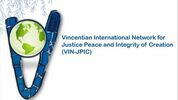

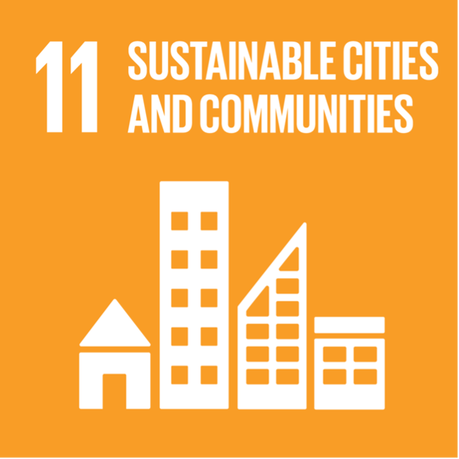
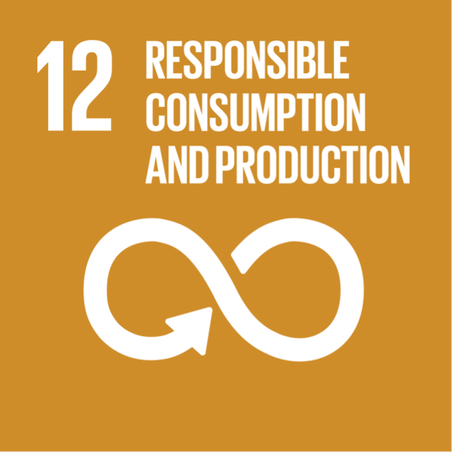
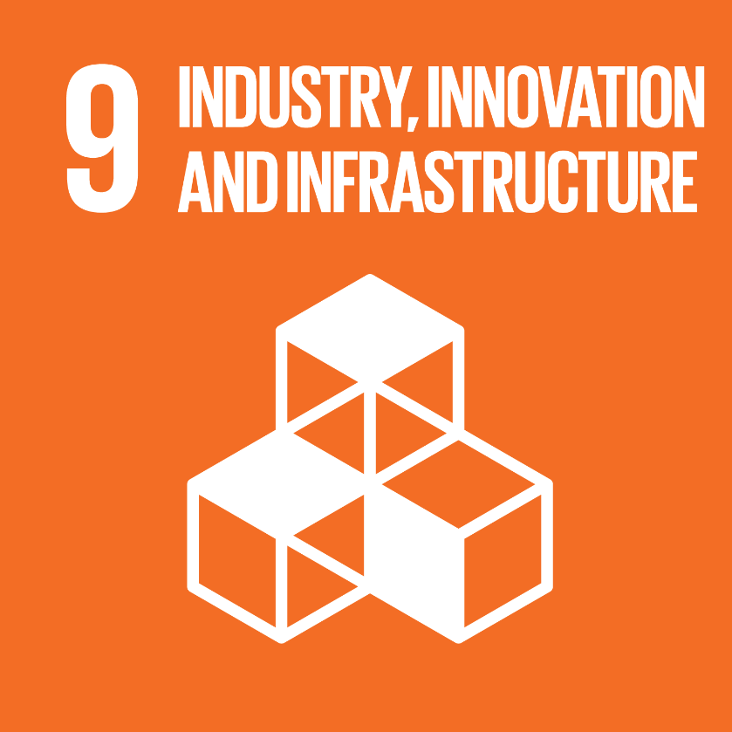
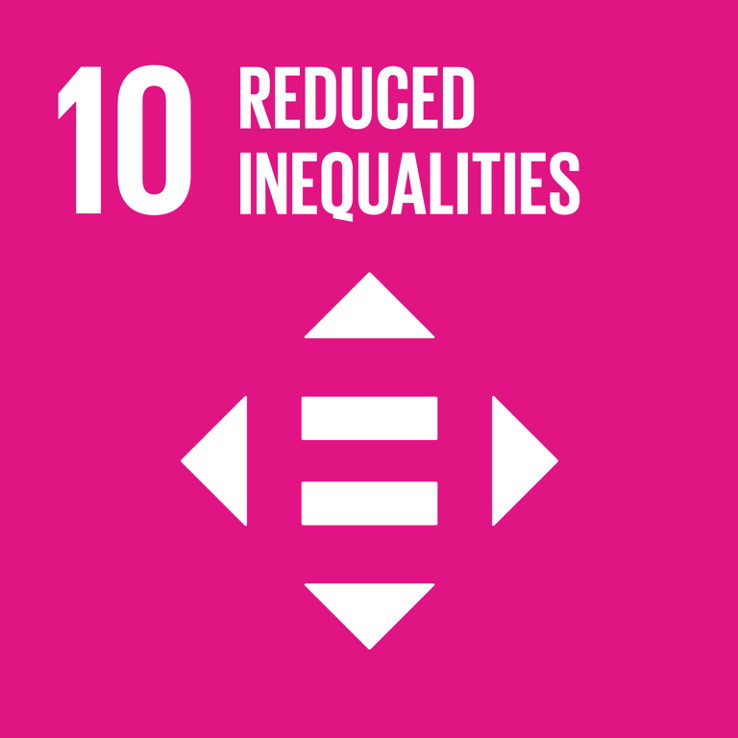
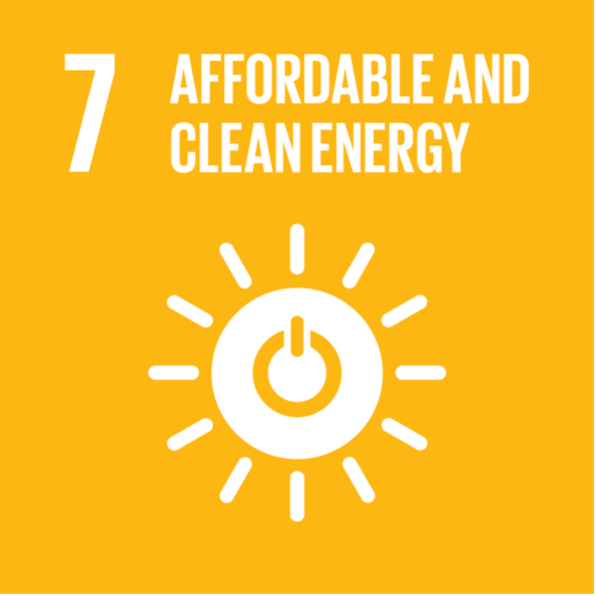
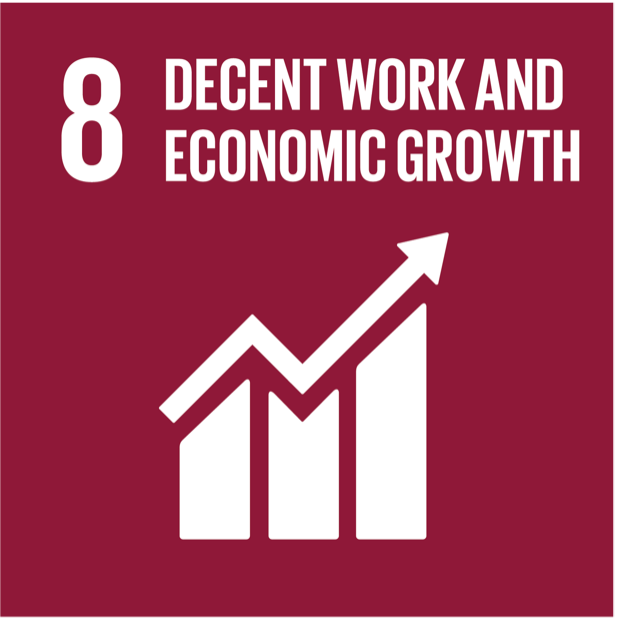
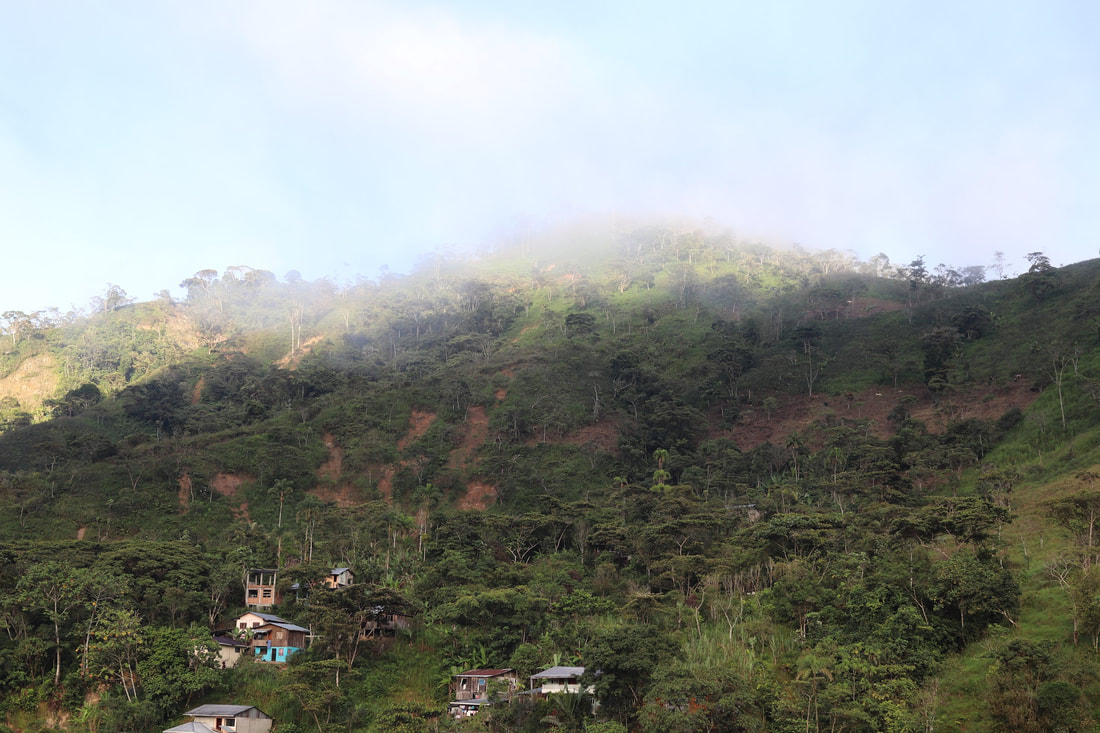
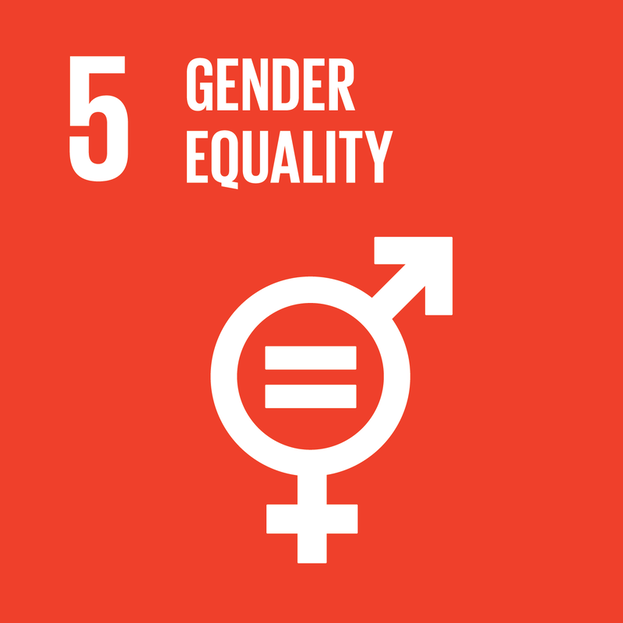
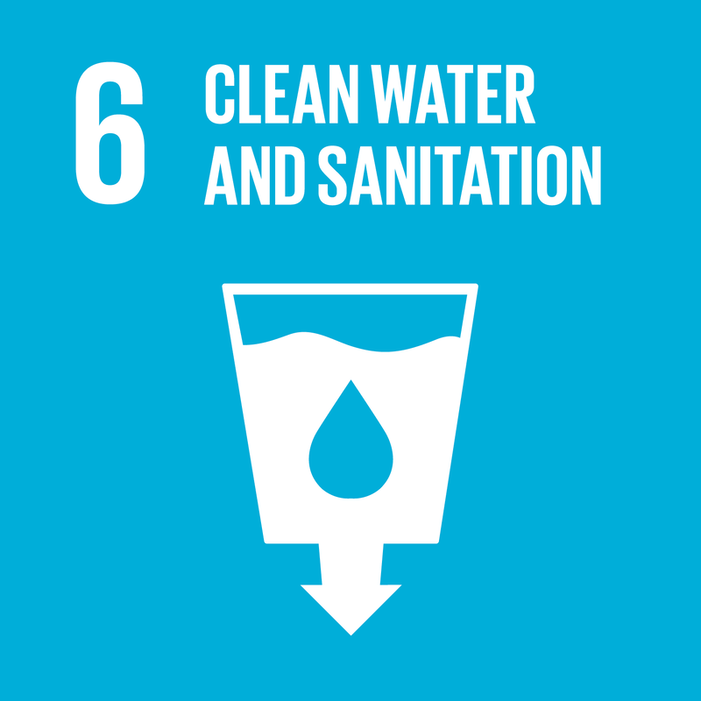
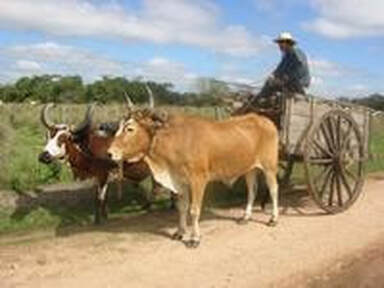
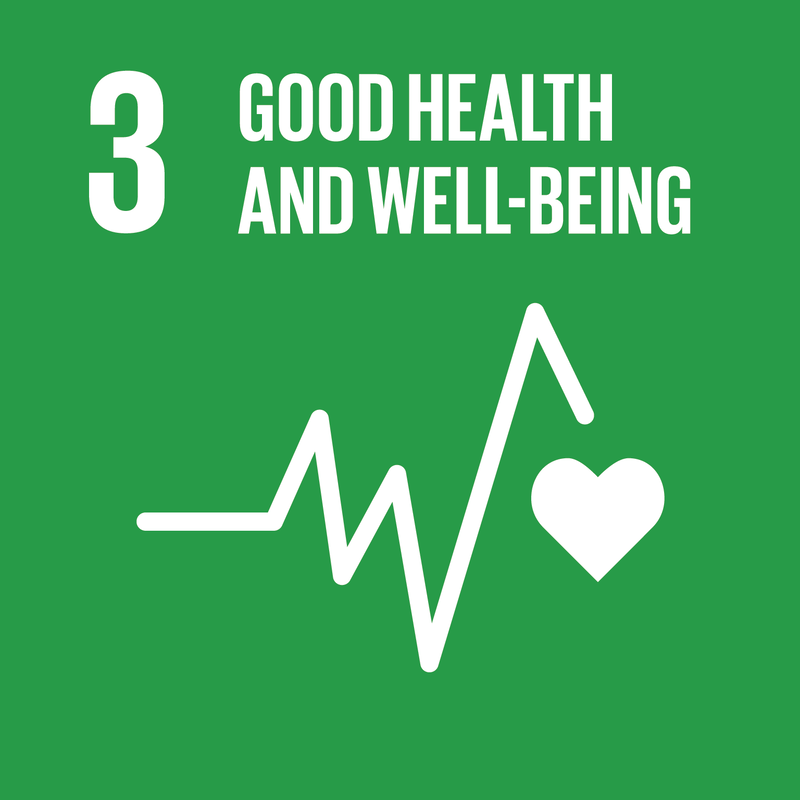
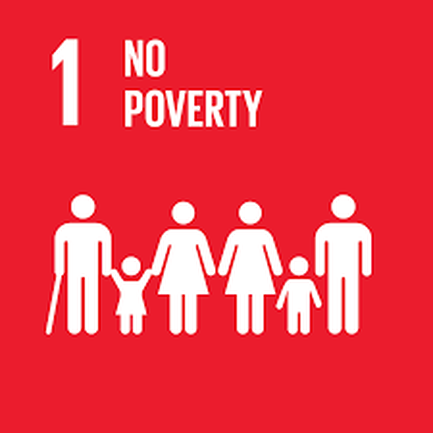
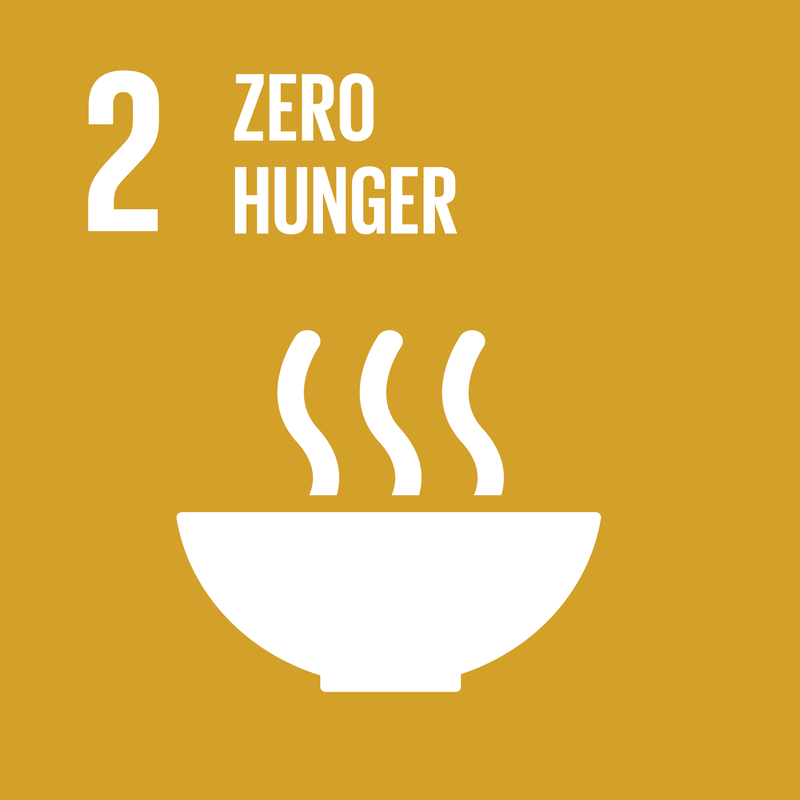

 RSS Feed
RSS Feed